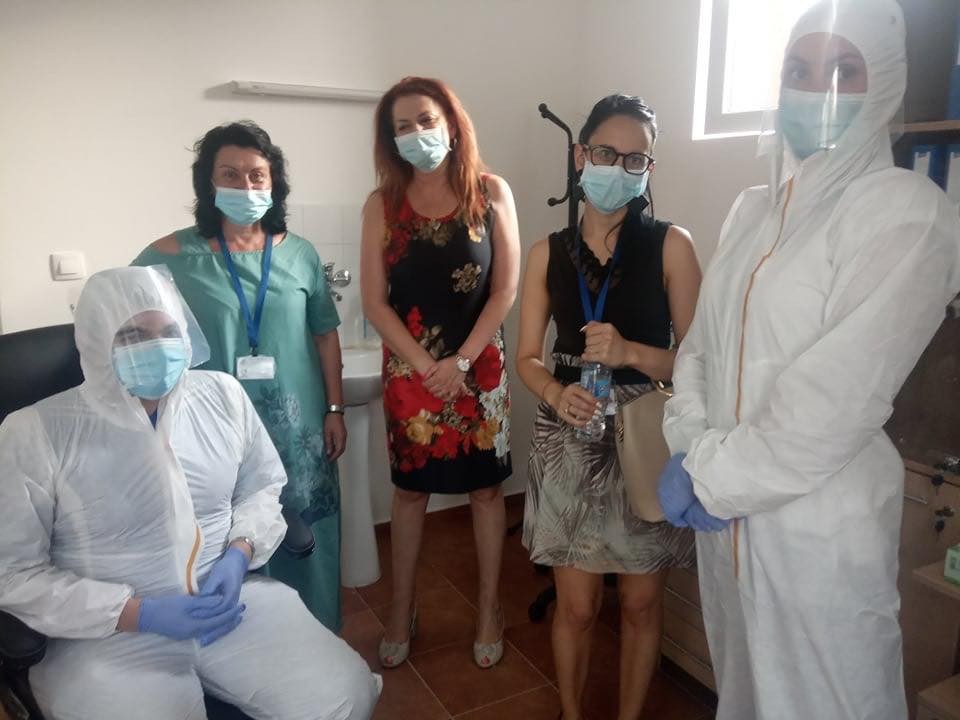If foreign citizens temporarily residing in Bulgaria experience symptoms resembling a coronavirus infection, they will receive immediate medical assistance, the Sofia Regional Health Inspectorate assures. People with this condition can go to any hospital.

"Those who come from EU member states should bring a European health card with them," explains Dr. Irina Gaitanevska from the Sofia Regional Health Inspectorate. “Through it, they will receive the medical care that every EU citizen deserves. All other foreign nationals need to contact the relevant Regional Health Inspectorate, where they will be assisted."
The websites of the Bulgarian Ministry of Health, Regional Health Inspectorates and other government institutions also contain useful information, yet it is mostly in Bulgarian. According to Dr. Irina Gaitanevska, no distinction is made in hospitals between Bulgarians and foreign citizens and everyone receives adequate medical care for their condition, regardless of the complicating epidemic situation and the expected shortage of beds.
Unlike foreigners who need to go directly to hospitals, Bulgarians with a suspected coronavirus infection should first contact their GP. It is their GP who decides whether to refer them to a medical institution or to recommend them to stay at home. And if they still need further medical care, they will be taken to the coordination centre of Sofia’s Infectious Diseases Hospital, which has been operating for two months now.
"This is the place that receives all transported patients from the Emergency Medical Centre with suspected coronavirus infection during the initial examination at home," explains Dr. Irina Gaitanevska in an interview for Radio Bulgaria. “There they are thoroughly examined, a more in-depth information of the history of their sickness is collected and, if necessary, tests are performed. If the person needs hospitalization, they are admitted to a medical institution, where they will receive the most adequate medical care. And if the person needs to stay under home treatment, they will be monitored by their general practitioner."

When a doctor at the coordination center decides that it is good for the patient to have a PCR test, it is performed free of charge. "But this is not a laboratory that anyone can go to and be tested for a coronavirus infection," Dr. Irina Gaitanevska explains.
All citizens - Bulgarians and foreigners - can decide to do a PCR test at their choice with an average price of BGN 120 (60 euro) and a quick test for the presence of antibodies to coronavirus for about BGN 30 (15 euro) in licensed laboratories throughout the country. By an order of the Ministry of Healthcare of October 21, 2020, the Minister of Health has designated 65 medical, healthcare institutions and regional health inspectorates which are licensed to conduct a highly specialized medical diagnostic test called "Polymerase chain reaction (PCR) for the detection of Covid-19". They are located in Sofia, Varna, Stara Zagora, Burgas, Plovdiv, Pleven, Kardzhali, Razgrad, Ruse, Vratsa, Silistra, Haskovo, Pervik, Veliko Tarnovo, Asenovgrad, Petrich, Montana, Sliven, Gabrovo, Shumen, Blagoevgrad, Gotse Delchev and Panagyurishte.
Photos: BGNES and Sofia Regional Health Inspectorate
Bringing youthful energy, colour and cheer to the Bulgarian National Radio studio, students from the Bulgarian Sunday School Dr Petar Beron arrived from Larnaca. The group from Cyprus — 16 pupils aged between 14 and 19 — is currently on a week-long..
At the outset of the war between Russia and Ukraine, the Bessarabian Bulgarians across all lands marked their national day with prayers for peace. Nearly four years on, burdened with even greater sorrow, they commemorate that special day scattered..
Switzerland is one of the smaller Central European countries on the Old Continent. It consists of twenty-six cantons with a population of about 9 million people, according to the latest Eurostat data from 2024. 41% of those residing in the country are..
Everyone knows that as soon as temperatures start going down it is pickle-making season. Making preserves at home is a time-honoured and widespread..
Minister of the Environment and Water Manol Genov has granted two centuries-old trees – each of which approximately 200 years old – protected status,..

+359 2 9336 661
